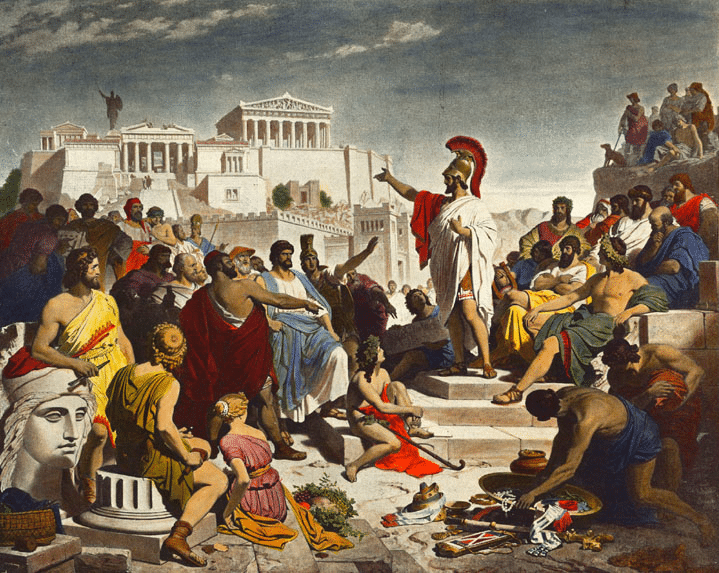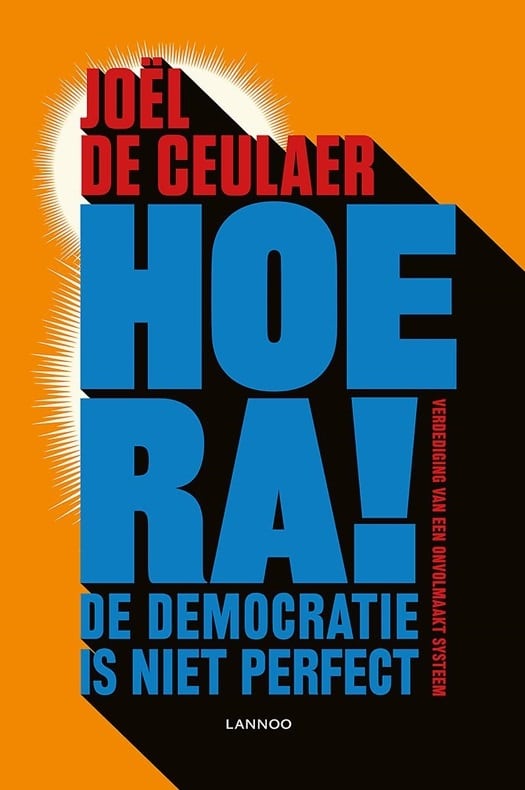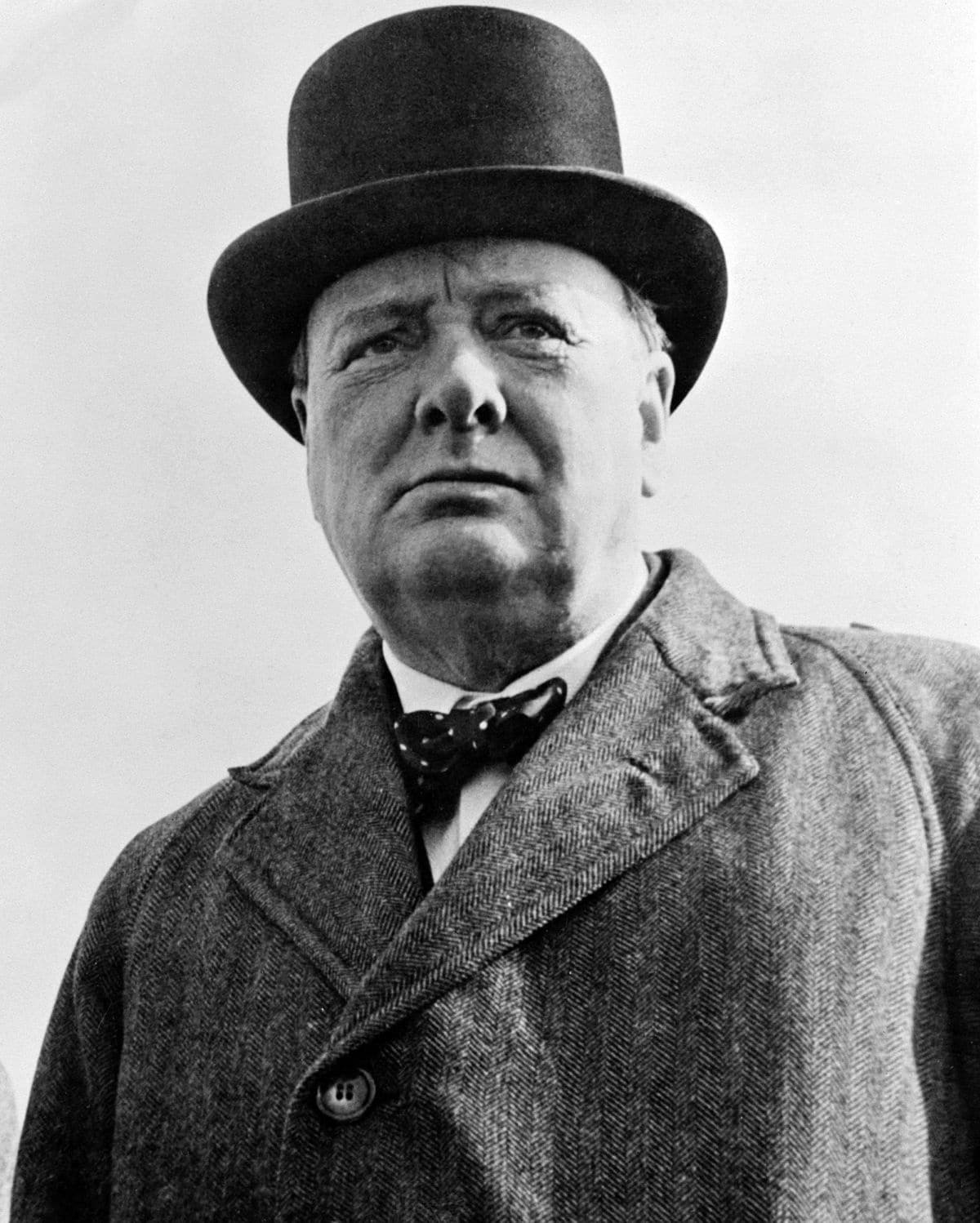Long Live the Crisis of Democracy?
Just going by today’s headlines, the end of Western democracy seems imminent. However, is a crisis not the essence of a democracy?
Just as tightrope walker Boris Johnson is about to plummet down from his rope, and we, citizens of Flanders and Belgium, still need to get by without a government four months after the elections were organised, it seems only right to quote Johnson’s hero, Winston Churchill. On 11 November 1947, when he was a regular Member of Parliament, he stated in the House of Commons: ‘Many forms of Government have been tried, and will be tried in this world of sin and woe. No one pretends that democracy is perfect or all-wise. Indeed, it has been said that democracy is the worst form of Government except for all those other forms that have been tried from time to time.…’
Spraying those apocalyptical walls on which we can read that there is no such thing as a democracy in crisis, that it will not last for much longer, and that an increasing number of people no longer believe in it with graffiti now and then is a good thing.
 Nineteenth-century painting by Philipp Foltz (1877) depicting the Athenian politician Pericles delivering his famous funeral oration in front of the Assembly. The Athenian public assembly is regarded as the archetypal example of democratic governance.
Nineteenth-century painting by Philipp Foltz (1877) depicting the Athenian politician Pericles delivering his famous funeral oration in front of the Assembly. The Athenian public assembly is regarded as the archetypal example of democratic governance.However, what if a crisis proves to the essence of a democracy? A Flemish journalist has recently published a book in which he lists six existential flaws of democracy.
. Democracy is unsatisfactory. Someone is guaranteed to be upset when public policies are implemented. Fortunately, we are able to vote down those in government.
. Democracy is illusive. What one person might consider symptomatic of a terminally ill democracy, to another person might attest to its vitality. Are traditional parties crumbling? Has the voter become volatile? He or she is actually able to once again subdivide the land into lots in accordance with new societal fault lines.
. Democracy is unfair. Indeed, there is a tension between democracy and the constitutional state, between the sovereign people and the sovereign individual, as they cannot cancel each other out. If in an increasing number of countries human rights are at risk because the majority of the population prefers authoritarian leaders, we must conclude that the electoral system can be unfair to minorities and individuals. This is what Tocqueville termed ‘the tyranny of the majority’. Conversely, a liberal rule of law could get out of hand and might end up neglecting the voice of the majority. That is exactly what is wrong with, for example, the European Union and the United Nations, and the reason why populists enjoy fighting judges and supranational organisations.
. Democracy is irreconcilable. That is right: we will always be divided. We should give up any hope for consensus.
. Democracy is not sensible. It does not necessarily lead to the best possible governance. Some intellectuals believe that the average person is not bright enough to have a say in public policy. On the contrary, the wisdom of crowds cannot be taken for granted.
. Democracy is impossible. We are unable to figure out our individual preferences and to translate them into a collective determination.
 In his book 'Hooray! Democracy is not perfect', Joël De Ceulaer lists the existential flaws of democracy.
In his book 'Hooray! Democracy is not perfect', Joël De Ceulaer lists the existential flaws of democracy.This plea for a representative, parliamentary democracy is quite refreshing. It puts the constant praise for deliberative models and citizens’ initiatives that, according to some, should replace the representative democracy into perspective. A draw could never replace elections.
So, let us stick to that messy democracy. Let us count our blessings. A democracy is synonymous with an organised disagreement, a conflict-heavy consensus. People are screaming bloody murder about so-called “social polarisation”, the “we versus they mentality”, which is supposed to be detrimental. It seems we will just have to learn to live with that.
The million-dollar question is whether the liberal constitutional state’s institutions are sufficiently resilient and sturdy, heard-wearing enough, in order to be able to deal with those in power who could be threating them. French political scientist Claude Lefort discussed how the room allocated to power in a democracy is always uninhabited. That room can only be inhabited temporarily at most, but always based on elections, pressure groups and conflicting opinions. That temporality and the system of checks and balances should be guarded carefully.
 Winston Churchill
Winston Churchill© Wikicommons
Let us not forget the core problem in this matter. The Founding Fathers of the American democracy mentioned “informed citizens” who could participate in political decision-making. High-quality education, available to all as well as trustworthy and solid information that can reach anyone are crucial to a democracy’s health. In our mass democracies combined with the fragmentation and atomisation of the information flow, and the elimination of the authoritative intermediary, guide and expert, this is a core problem for which I cannot think of a quick-fix solution. Unless, against my better judgement, I start believing in high-quality education and trustworthy information.
Nevertheless, allow me to end with a quote by that very same Churchill. In the House of Commons, while the war was in full swing (31 October 1944), Churchill, in his capacity of Prime Minister, stated: ‘At the bottom of all the tributes paid to democracy is the little man, walking into the little booth, with a little pencil, making a little cross on a little bit of paper—no amount of rhetoric or voluminous discussion can possibly diminish the overwhelming importance of that point.’












